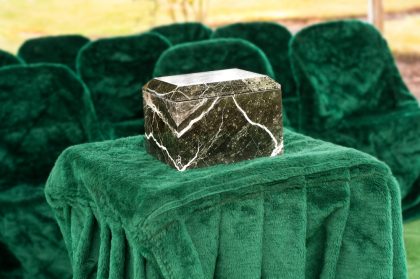The title “Rational Death” seems like a contradiction in terms. In a lot of ways, death is the opposite of rational.
Thinking about our own death can lead to some pretty irrational thoughts. A loved one’s death may be too upsetting for words, much less rationality.
When we talk about motives the “rational” ones are those that increase benefit—generally implying the opposite of death.
But there is a sense in which we want to treat death rationally, to have it all make sense, because death is not just a metaphysical challenge. Death is also a physical event.
When someone dies, things must be done. Decisions and arrangements must be made, and money usually must be spent. Our species has been dealing with the event of death as long as we’ve been around.
Since every one of us is going to die, it seems worthwhile to discuss what we have to do when we or someone else dies, and why.
“Rational” here means how we understand what we do. In almost every aspect of our lives, we use our ability to reason, and we take for granted a rational basis on which to make decisions, even at the most emotional times. The tasks required when someone dies can be complicated and have powerful effects on our emotions and how we perceive the security of our own existence. Yet rationality does come into play.
Unfortunately, making all the arrangements can be such confusing territory that many people won’t see any reasonable basis for the decisions. It isn’t just that we don’t know everything that we have to do: a phone call to a funeral director can fill us in on all of the choices. The problem is that the choices aren’t easy to place a value on.
I began, some years ago, writing down things I had learned in the process of helping people make funeral arrangements, from the perspective of someone with more familiarity than most. But a “how-to” for consumers turned out to be a bigger project the more I tried to account for all the considerations. For example, to understand the difference between different types of ceremonies, you need to hear what ceremonial experts and the people selling the services say, and then to look at least a little bit into the histories of those practices. Why do we buy flowers? Who ought to see the deceased person? What are the pluses and minuses of cremation?
Before long, I was compiling much more than consumer tips—although that remains part of the project. But information from the fields of history, anthropology, sociology, and psychology became just as important to the end goal of making funerals make sense to the typical modern American.
Death is when, in the words of W. Lloyd Warner, “some of the deepest and most irrational feelings that possess men dominate and harass their lives.” Even those who can make good financial decisions at difficult times need to know what sorts of products and services they are deciding about. The funeral decision process is confusing on multiple levels.
Clearing up that confusion, and providing a rational basis for death practices, are the two main purposes of this Web site.




